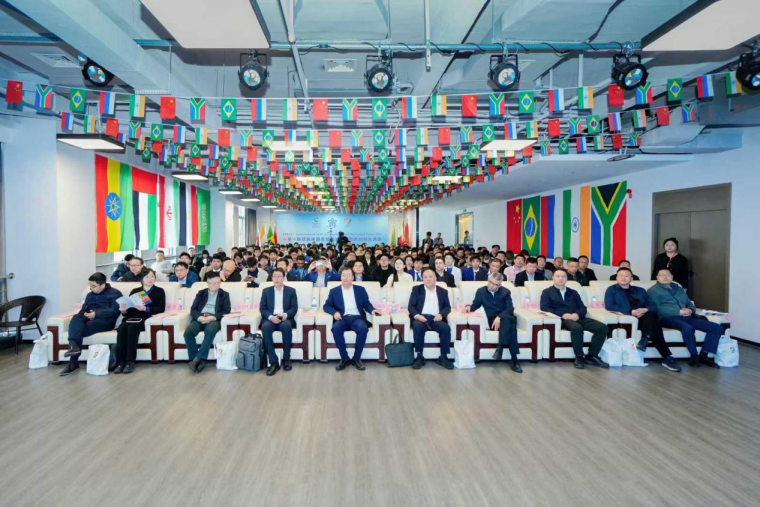
From March 14th to 16th, the BRICS Group Standards Formulation Training Course (Phase III) themed "Elevating BRICS Standards: Facilitating Vocational Education Going Global and Empowering Enterprise Internationalization" was successfully held at the BRICS Academy of Skills Development and Technology Innovation(Xiamen).
This training is jointly organized by the BRICS Standardization Working Committee for Skills and Technology, the Xiamen Technical Skills Research & Development, and Standard Formulation, and the International Alliance of Skills Development for Belt & Road and BRICS, and hosted by the BRICS Academy of Skills Development and Technology Innovation(Xiamen).
Dr. Liu Zhenying, Chair of the BRICS Standardization Working Committee for Skills and Technology, Director of Technical Skills Research & Development, and Standard Formulation, and President of BRICS Academy of Skills Development and Technology Innovation (Xiamen); Zhou Shuhua, Director of the Standard Internationalization Research Institute of Zhejiang Academy of Quality Science and Director of the BRICS Standardization (Zhejiang) Research Center; Cao Weimin, Deputy Director of the Xiamen Municipal Bureau of Science and Technology; Valério Junior Piana, Internationalization Coordination Manager of SENAI/SC University Center (UniSENAI/SC) at the SENAI Innovation and Technology Institute in Brazil; Japie Greeff, Acting Deputy Director and Senior Lecturer at the School of Computer Science and Information Systems, North-West University, South Africa; and Eric Esentaev, Director of the Independent Certification Agency BILIM Public Foundation of the Kyrgyz Republic, attended the opening ceremony and delivered speeches
Deputy Director of Xiamen Municipal Education Bureau Hong Jun, Chief Engineer of Xiamen Torch Hi-Tech Zone Management Committee Wu Zhiwei, Deputy District Governor of Xiamen Jimei District Lin Weiyi, Deputy General Manager of Xiamen Information Group Huang Rong, Deputy Director of Xiamen Jimei District Science and Technology and Industry Information Technology Bureau Xie Ming, Deputy Director of Science and Technology Cooperation Division of Xiamen Municipal Science and Technology Bureau Xie Guiting, Director of the Comprehensive Service Center of China BRICS New Era Technology Innovation Incubation Park Zhang Dianhui, Executive Director Lin Zhiqiang, and other distinguished guests attended the opening ceremony. Representatives from Brazil, Russia, South Africa, Iran, Indonesia, Kazakhstan, Kyrgyzstan, Pakistan, and other countries participated in the opening ceremony online.
This standards development training workshop attracted 65 standardization practitioners from vocational colleges and enterprises across the country, who participated in the training through a combination of online and offline methods.
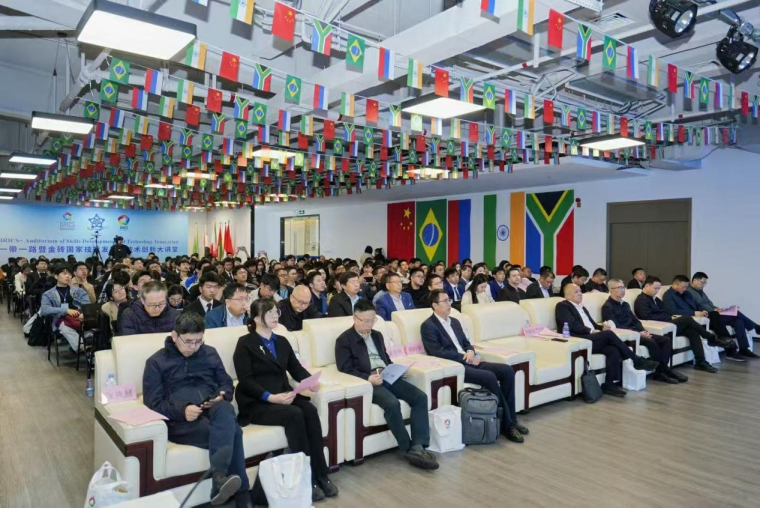
Dr. Liu Zhenying emphasized the significant role of BRICS group standards in international cooperation in the report titled "Designing Outcomes of BRICS+ Cooperation to Facilitate Chinese Enterprises and Vocational Education Going Global." These standards not only provide unified norms for vocational education and skills development among BRICS nations but also promote the formation of "golden disciplines," "golden courses," and "golden teaching materials" through multi-domain collaboration in developing competition standards, curriculum standards, skills standards, and teaching resources. This standardization effort has not only enhanced the international competitiveness and influence of China's vocational education but also offered a replicable paradigm for global skills talent cultivation. Furthermore, the formulation of group standards provides technical support and standard guidance for Chinese enterprises "going global," helping them better integrate into international markets, facilitating technological cooperation and results transformation, further strengthening the international competitiveness of Chinese-funded enterprises, and making positive contributions to building an open and mutually beneficial global cooperation ecosystem.
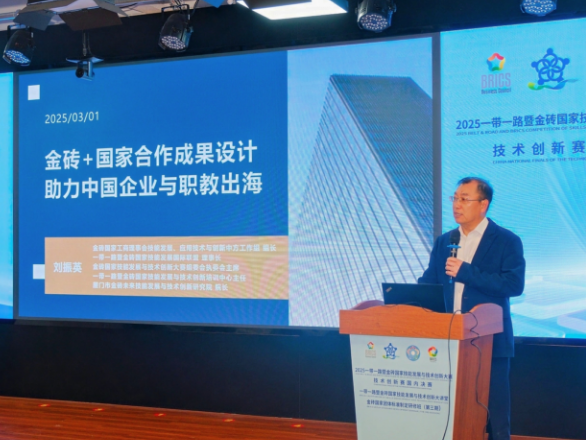
Valério Junior Piana, Internationalization Coordinator Manager of SENAI/SC University Center (UniSENAI/SC) at Brazil's SENAI Institute of Innovation and Technology, emphasized in his speech that BRICS countries have not only strengthened the uniformity of technical frameworks through the development of group standards but also consolidated the trust and partnerships built over years of cooperation. He further highlighted that the advancement of BRICS group standards represents not only the outcome of technical collaboration but also a manifestation of collective efforts and mutual support among member nations. He called upon all parties to use standards as a bridge to promote win-win cooperation and build a technological ecosystem capable of serving the people, fostering economic prosperity, and achieving sustainable growth. He expressed confidence that this seminar would establish new bridges for closer cooperation and exchange among BRICS nations, ushering in an even more brilliant future.
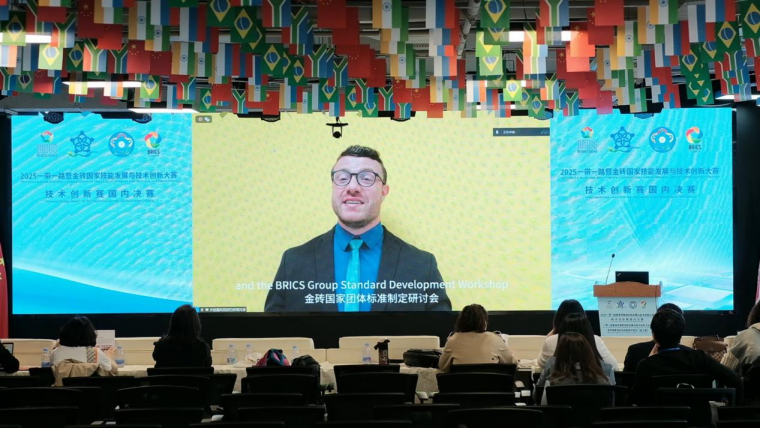
Acting Deputy Director of the School of Computer Science and Information Systems at North-West University, South Africa, and Senior Lecturer Japie Greeff pointed out that technical standards serve as the invisible infrastructure for innovation, ensuring the scalability, interoperability, and global impact of technological achievements. He emphasized that the work of the BRICS Group Standards Development Workshop is a crucial practice for laying a solid foundation for technological progress. Professor Greeff stated that by establishing unified technical standards, the BRICS nations not only enhance the depth and breadth of technological collaboration but also set a common benchmark for future international cooperation. He noted that the formulation of these standards will help BRICS countries occupy a more prominent position in global technological competition while providing stronger support for the development of the global economy. The outcomes of the workshop will define new directions for technological advancement and open vast opportunities for innovative collaboration.
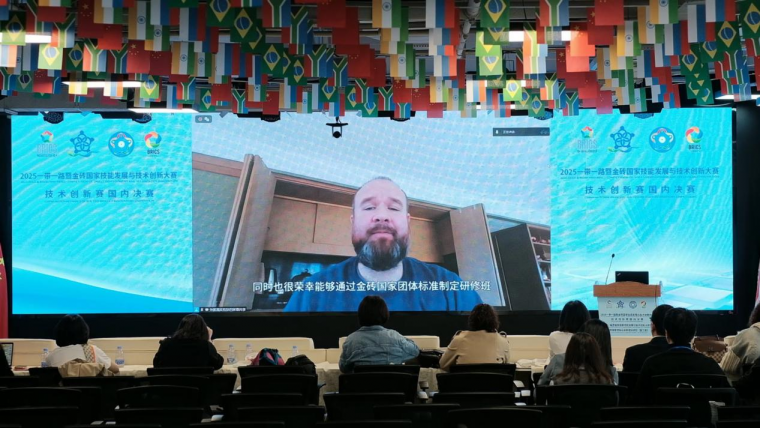
In his speech, Eric Esentaev, Director of the Independent Certification Agency BILIM Public Foundation of the Kyrgyz Republic, emphasized that the BRICS cooperation mechanism and the Belt and Road Initiative have played a pivotal role in the international standardization process. This training program aims to promote technology innovation and collaboration among nations through standard formulation, enhancing sustainability and competitiveness in the era of digital transformation. He stated that standardization not only facilitates technical exchanges and capacity building across various fields but also provides crucial support for global scientific and technological development. He expressed hope that this event would further strengthen international cooperation and innovation.
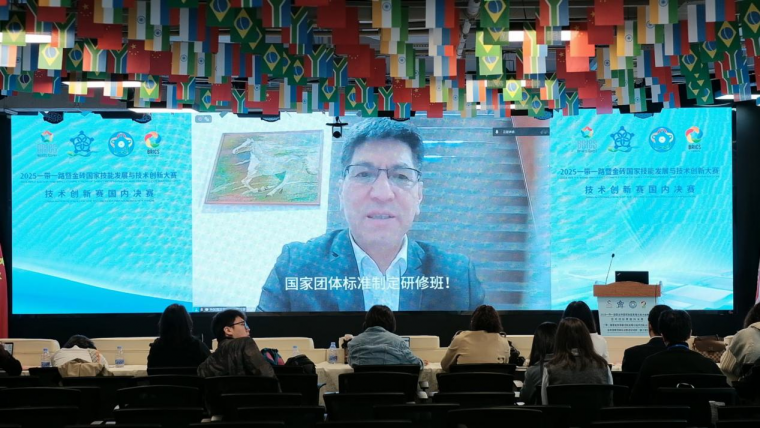
Zhou Shuhua, Director of the Standard Internationalization Research Institute at Zhejiang Academy of Quality Science and head of the BRICS Standardization (Zhejiang) Research Center, delivered a keynote report titled "Reflections on BRICS Standardization Cooperation Under New Circumstances." He elaborated on the significant importance of BRICS standardization cooperation in the current context. Zhou noted that the accelerated restructuring of global politics and economy has placed higher demands on standardization collaboration. Through years of effort, BRICS nations have achieved a series of standardization cooperation outcomes in areas such as skill development, lighting, traditional medicine, e-commerce, and digital payments, while successfully promoting the alignment of international standardization positions. Zhou emphasized that standardization cooperation not only facilitates trade but also provides a solid foundation for addressing external environmental changes and technological challenges. He called for improving the BRICS standardization cooperation mechanism and further enhancing the international influence and competitiveness of BRICS nations by deepening strategic choices and collaborative pathways.
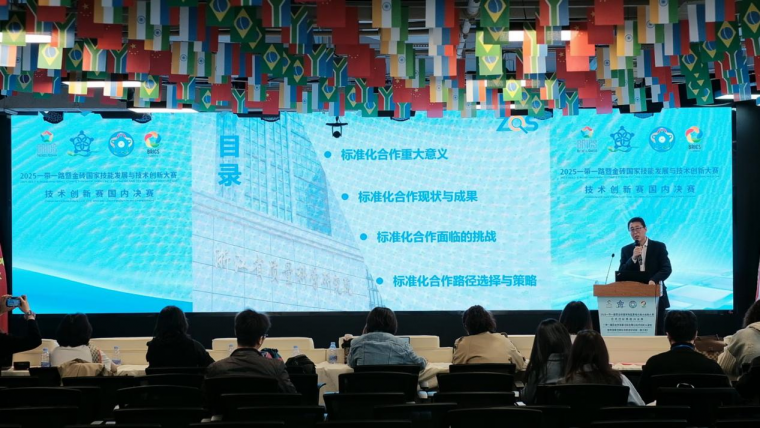
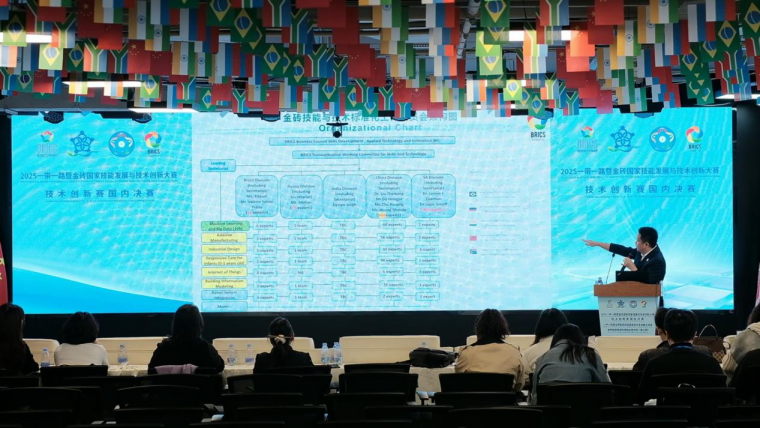
Wu Jianfeng, member of the BRICS Standardization Working Committee for Skills and Technology, shared the "Progress and Achievements of the BRICS Skills Development and Technology Standards Working Committee."
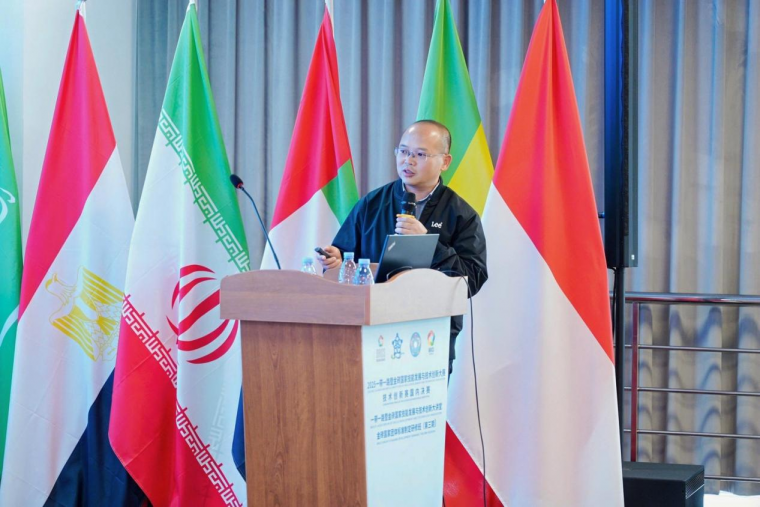 Expert Chen Liangquan, registered specialist of ISO/TC107/SC9 and national-level senior standardization expert—author of "Group Standardization Knowledge" and "Interpretation of GB/T 1.1-2020 Guidelines for Standardization Work".
Expert Chen Liangquan, registered specialist of ISO/TC107/SC9 and national-level senior standardization expert—author of "Group Standardization Knowledge" and "Interpretation of GB/T 1.1-2020 Guidelines for Standardization Work".

Expert Huang Shunda, recipient of the 2022 IEC 1906 Award, registered expert and bilateral liaison for IEC/TC40 and IEC/TC33 — "Case Analysis on the Compilation of BRICS Group Standards in Chinese and English Versions"
Finally, Dr. Liu Zhenying and the experts presented the trainees with their completion certificates.
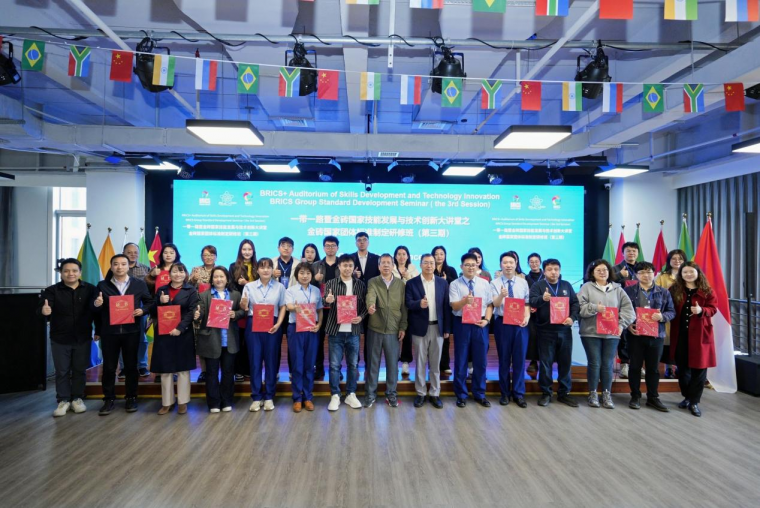 The successful convening of this BRICS Group Standards Formulation Training Course has not only provided participants with a valuable platform for in-depth discussions on technical standardization, but also taken a solid step forward in promoting innovation cooperation and capacity building among BRICS nations. Through open collaboration and knowledge sharing, the program has laid the foundation for building closer international partnerships and formulating technical standards that will lead future development. Looking ahead, BRICS countries will continue to work hand in hand to jointly advance global sustainable development and technological progress, writing an even more splendid chapter of cooperation.
The successful convening of this BRICS Group Standards Formulation Training Course has not only provided participants with a valuable platform for in-depth discussions on technical standardization, but also taken a solid step forward in promoting innovation cooperation and capacity building among BRICS nations. Through open collaboration and knowledge sharing, the program has laid the foundation for building closer international partnerships and formulating technical standards that will lead future development. Looking ahead, BRICS countries will continue to work hand in hand to jointly advance global sustainable development and technological progress, writing an even more splendid chapter of cooperation.
Related Reading
Recommended articles
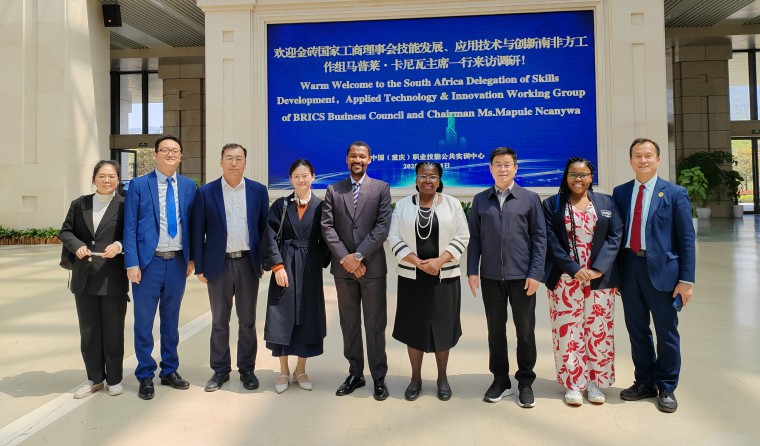
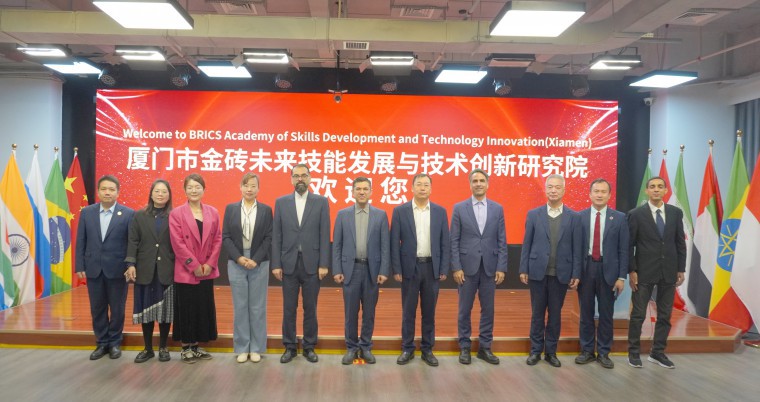
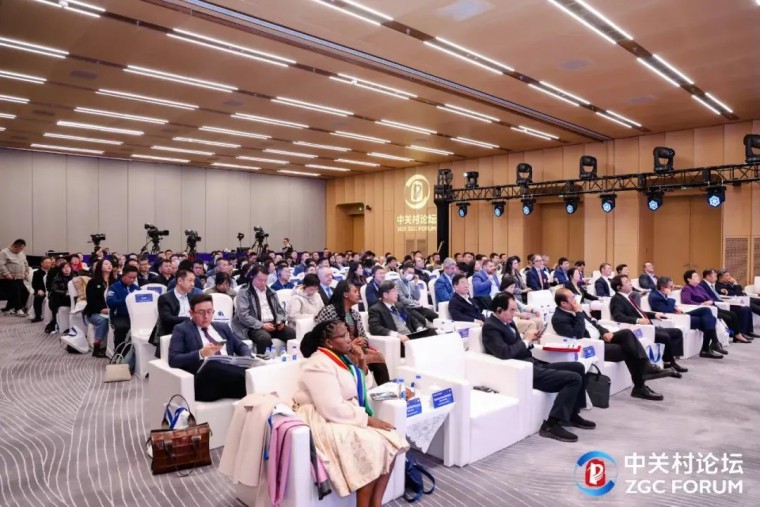

Popular articles


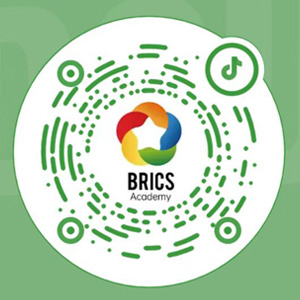
 闽ICP备12331232468号-1
闽ICP备12331232468号-1